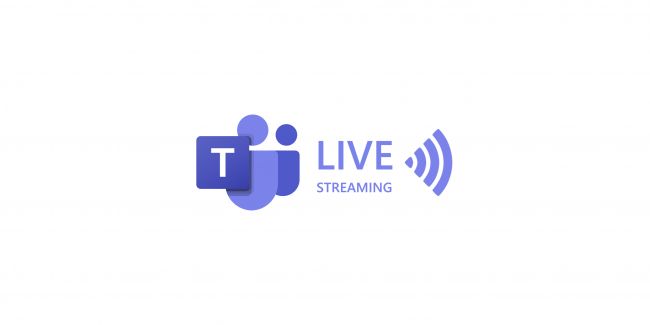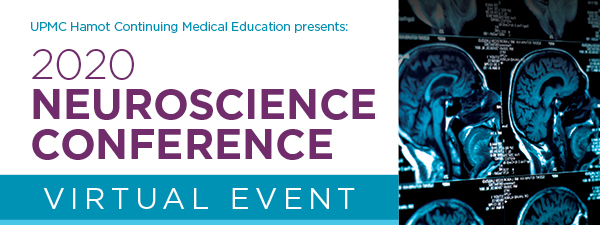UPMC Hamot 2020 Neuroscience Virtual Conference
Need
Early diagnosis and treatment of stroke and other neurologic disorders can have a profound impact on patient outcomes and mortality. The diagnosis, management, treatment, and rehabilitation of diseases of the brain and spine is rapidly changing. It is vital that primary care practitioners, nurses, therapists, and other advanced practice providers maintain an awareness of the differential diagnoses, as well as new and emerging treatment options for these.
Goal
This annual activity will focus on the neurosciences, including stroke and other disorders of the brain, as well as foster networking and collaboration among clinical disciplines within the region. Both current and future treatment options will be addressed, along with management issues and prevention of possible complications. Case presentations will complement didactic presentations.
Target Audience
Primary care physicians, internists, neurologists, neurosurgeons, nurses, nurse practitioners, physician assistants; physical, occupational, and speech therapists; and other advanced practice providers will benefit from attendance at this activity.
Learning Objectives
At the conclusion of this activity, the participants should be able to:
- Review the evolution of stroke treatment in the past quarter century
- Discuss current clinical trials in stroke treatment
- Assess potential future of stroke treatment
- Identify types of rapidly progressing dementia
- Describe assessment and differential diagnosis for rapidly progressing dementia
- Assess treatment options for rapidly progressing dementia
- Identify long-term post-stroke complications
- Discuss treatment options for stroke complications
- Describe challenges in treatment and prevention of secondary stroke
- Discuss differential diagnosis of headache
- Review traditional treatment options used for headache
- Discuss new calcitonin gene related peptide (CGRP) treatment option
- Identify atypical causes of stroke
- Discuss unique challenges presented by atypical stroke
- Review differences in treatment options and considerations or indications for atypical stroke
- Review the process of stem cell transplant candidacy
- Describe pre & post stem cell transplant challenges
- Consider the patient perspective of the stem cell transplant process
- Identify utilization of consumer automated device that will assist spinal cord injury patients in eADLs
- Review devices that would minimize the effects of spinal cord injury secondary complications
- Discuss accessible computer and console gaming for patients with fine motor deficits
- Examine interplay of comorbidities on management of Parkinson’s
- Describe strategies for management of complex Parkinson’s patient
- Explain considerations for management of multiple medications for Parkinson’s disease
- Discuss differential diagnosis of seizures and pseudo seizures
- Review updated and current practice guidelines for seizures
- Describe treatment of patients with dual diagnosis of seizures and pseudo seizures
Additional Information
| Attachment | Size |
|---|---|
| 1.07 MB |
7:30 – 8 | Registration | |
8 – 8:05 | Opening Remarks | Tammy Kordes, PhD, Trevor Phinney, DO |
8:05 – 8:50 | DeMatteis Commemorative Talk: Where We Started and Where We’re Going* | Ann Sokoloff, BSN, CNRN, Trevor Phinney, DO |
8:50 – 9:35 | Rapidly Progressing Dementia: What You Need to Know | Nykole Gonzalez, PsyD |
9:35 – 9:50 | Break | |
9:50 – 10:20 | Post Stroke Complications: Long Term Treatment Options and Challenges* | Trevor Phinney, DO |
10:20 – 11:05 | When is a Headache Just a Headache and When to be Concerned? | Karen Bellini, DO |
11:05 – 11:50 | How to Manage Atypical Stroke* | Josh Smith, DO |
11:50 – 12:35 | Break | |
12:35 – 1:05 | Patient Perspective: Stem Cell Transplant | Kelly Tapper |
1:05 – 2:05 | E-Independence: Use of Automated Personal Assistive Smart Home Technology After Spinal Cord Injury* | Randall Huzinec, PT |
2:05 – 2:20 | Break | |
2:20 – 3:05 | Parkinson’s: Updates, Strategies, and Considerations in Management | Dimitrios Nacopoulos, MD |
3:05 – 3:50 | Updates in Epilepsy Care and Management | Lazarus Mayoglou, DO |
3:50 | Adjournment *Approved for stroke credit | |

Due to the COVID-19 pandemic, the conference will be held virtually, as a Teams LIVE event.
Pre-registrants will be sent links prior to the conference, and all links will be available on the conference website for those who have registered.
All presentations will be taking place live eastern standard time (EST)
COURSE DIRECTORS:
Tammy Kordes, Ph.D.
Neuropsychologist
Northshore Neurosciences
FACULTY:
Karen Bellini, DO
Neurologist
UPMC Hamot
Disclosure: Dr. Bellini has no relevant financial or nonfinancial relationships to disclose.
Nykole Gonzalez, PsyD
Postdoctoral Fellow
Northshore Neurosciences
Disclosure:
Financial— No relevant financial relationship exists.
Nonfinancial— Member: Pennsylvania Psychological Association. Member: American Psychological Association. Dr. Gonzalez receives no compensation as a member of these associations.
Randall Huzinec, PT
Physical Therapy Senior
Spinal Cord Injury Program
UPMC Mercy
Disclosure: Mr. Huzinec has no relevant financial or nonfinancial relationships to disclose.
Lazarus Mayoglou, DO
Neurologist
UPMC Northshore Neurology
Disclosure: Dr. Mayoglou has no relevant financial or nonfinancial relationships to disclose.
Dimitrios Nacopoulos, MD
Neurologist
UPMC Northshore Neurology
Disclosure:
Financial— No relevant financial relationship exists.
Nonfinancial— Medical Director: Parkinson’s Partners of NWPA. Dr. Nacopoulos receives no compensation as medical director.
Trevor Phinney, DO
Neurologist
UPMC Northshore Neurology
Disclosure: Dr. Phinney has no relevant financial or nonfinancial relationships to disclose.
Josh Smith, DO
Graduate Medical Resident
UPMC Northshore Neurology
Disclosure: Dr. Smith has no relevant financial or nonfinancial relationships to disclose.
Ann Sokoloff, BSN, CNRN
Clinical Director, Ortho/Neuro Services
UPMC Hamot
Disclosure: Ms. Sokoloff has no relevant financial or nonfinancial relationships to disclose.
Kelly Tapper
Patient Speaker
Disclosure: Ms. Tapper has no relevant financial or nonfinancial relationships to disclose.
ACCREDITATION
In support of improving patient care, the University of Pittsburgh is jointly accredited by the Accreditation Council for Continuing Medical Education (ACCME), the Accreditation Council for Pharmacy Education (ACPE), and the American Nurses Credentialing Center (ANCC), to provide continuing education for the healthcare team.
PHYSICIAN (CME)
The University of Pittsburgh designates this live activity for a maximum of 6.5 AMA PRA Category 1 Credits™. Physicians should claim only the credit commensurate with the extent of their participation in the activity.
PHYSICIAN ASSISTANT (AAPA)
The University of Pittsburgh has been authorized by the American Academy of PAs (AAPA) to award AAPA Category 1 CME credit for activities planned in accordance with AAPA CME Criteria. This activity is designated for 6.5 AAPA Category 1 CME credits. PAs should only claim credit commensurate with the extent of their participation.
NURSING (CNE)
A maximum of 6.5 nursing contact hours will be awarded. Participants will be able to claim credit commensurate with the extent of their participation in the program.
OTHER HEALTHCARE PROFESSIONALS
Other health care professionals will receive a certificate of attendance confirming the number of contact hours commensurate with the extent of participation in this activity.
AOA ACCREDITATION
The Philadelphia College of Osteopathic Medicine is accredited by the American Osteopathic Association to provide osteopathic continuing medical education for physicians. The Philadelphia College of Osteopathic Medicine designates this program for a maximum of six and a half hours of AOA Category 1-A credits and will report CME and specialty credits commensurate with the extent of the physician's participation in this activity.
Stroke Credit
Sessions that meet requirements for stroke education hours will be indicated on the credit designation form at the conference. This activity has been designed to meet the requirements for 3 stroke education hours.
PT Credit
Application has been submitted to the Pennsylvania State Board of Physical Therapy for course approval for 6.5 credit hours.
OT Credit
Application has been submitted to the Pennsylvania State Board of Occupational Therapy for course approval for 6.5 credit hours.
ASHA Credit
This course is offered for 0.65 ASHA CEUs (Intermediate Level: Professional Area)

Available Credit
- 6.50 AAPA Category I CME
- 6.50 AMA PRA Category 1 Credit™The University of Pittsburgh School of Medicine is accredited by the Accreditation Council for Continuing Medical Education to provide continuing medical education for physicians.
- 6.50 ANCCUPMC Provider Unit is accredited as a provider of continuing nursing education by the American Nurses Credentialing Center’s Commission on Accreditation
- 6.50 Attendance
Thank you to this year's exhibitors for supporting our first virtual event!
Abbott
Acadia Pharmaceuticals
Biohaven Pharmaceuticals
Genentech
Janssen
Medtronic
Mitsubishi Tanabe Pharma America, Inc. “Radicava”
UCB

 Facebook
Facebook X
X LinkedIn
LinkedIn Forward
Forward